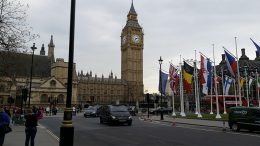Britain’s Still Got It
*This article was originally published by Fair Observer. Atul Singh & Martin Plaut | Since Brexit in 2016, the United Kingdom’s growth rate has been poor. Inflation is at its highest rate in 30 years. In December 2021, it had risen to 5.4%. Wages have failed to keep up and, when we factor in housing or childcare costs, the cost of living has been rising relentlessly. COVID-19 has not been…








